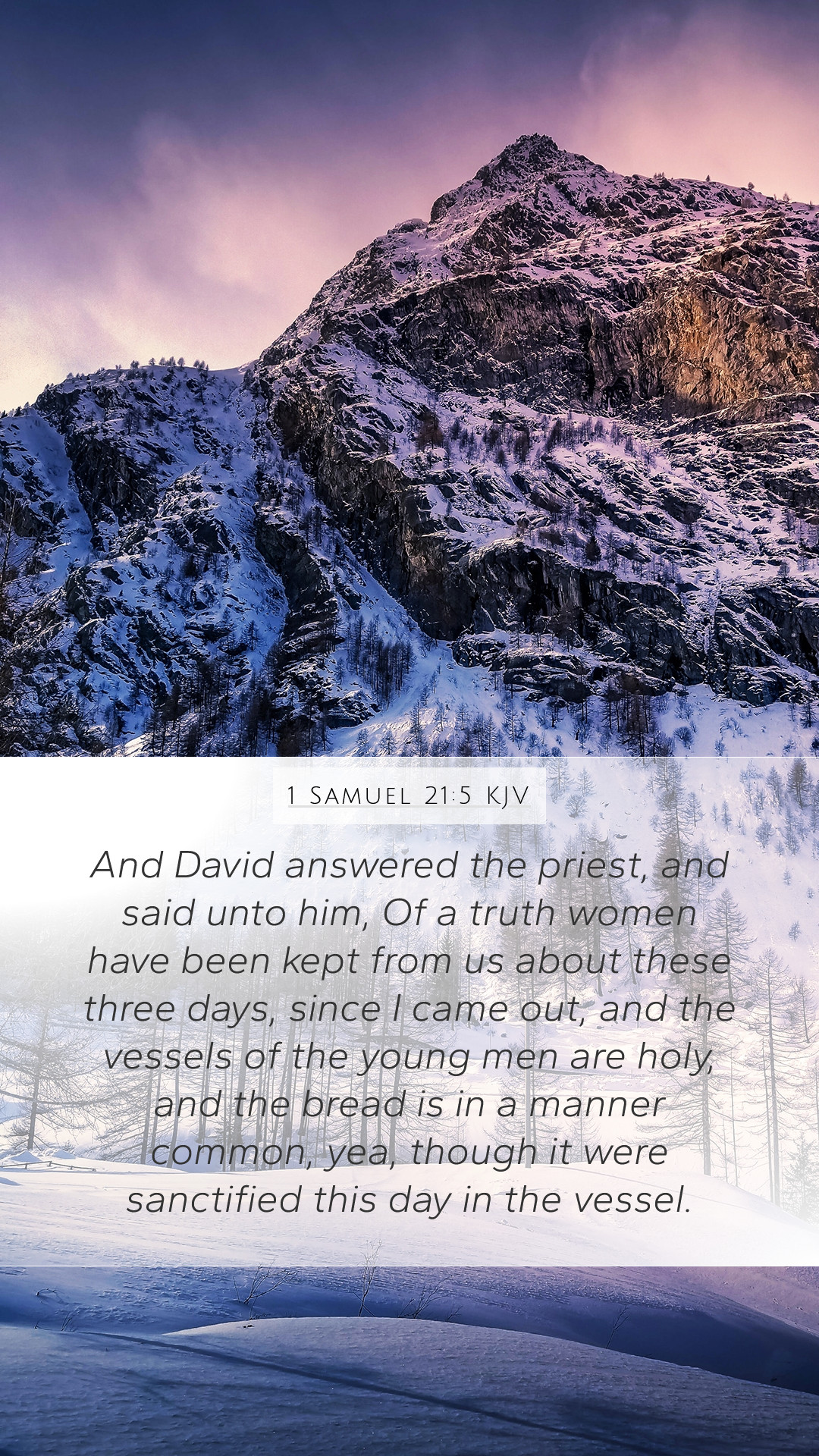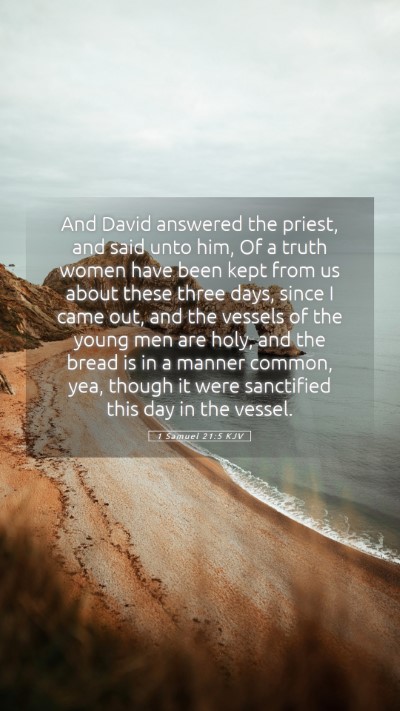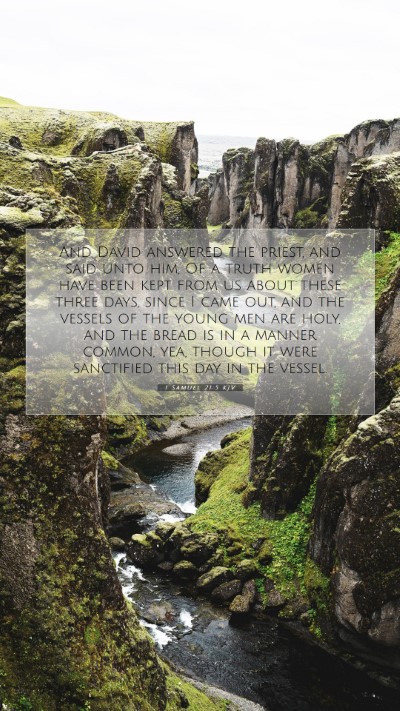Bible Verse Explanation: 1 Samuel 21:5
This passage reads:
"And David answered the priest and said unto him, Of a truth, women have been kept from us about these three days. Since I came out, and the vessels of the young men are holy, and the bread is in a manner common, yea, though it were sanctified this day in the vessel."
Understanding the Verse
1 Samuel 21:5 serves as a critical moment in the narrative of David as he seeks refuge while on the run from King Saul. The verse speaks to several themes including ritual purity, the nature of holiness, and the significance of provision during times of distress.
Summarized Insights from Commentaries
-
Matthew Henry's Commentary
Context of David's Flight: David is in a precarious situation, having fled from Saul. He finds himself in the sanctuary of Nob, where he seeks help from Ahimelech the priest. The context emphasizes the urgency and need for sustenance, highlighting David's reliance on God's provision.
Discussion of Holiness: Henry notes that David uses the concept of 'holiness' to justify his need for the showbread, which was normally reserved for the priests. This demonstrates a deeper understanding of the heart of the law compared to the literal interpretation, suggesting that meeting human needs may supersede ritual observances.
-
Albert Barnes' Notes
Clarification on 'Common' and 'Holy': Barnes elaborates that David distinguishes between the bread's sanctity and its practical use. He articulates that while the bread is physically common, it is considered holy due to its use in the worship of God. This raises questions about what constitutes true holiness—whether it is the adherence to ritual or the intent behind actions.
Significance of the 'Vessels': David refers to the 'vessels' that have been kept holy, reflecting the seriousness of maintaining these items in line with divine law. His statement reinforces the idea that holiness is not solely about physical objects but also about the state of heart and intention.
-
Adam Clarke's Commentary
Historical Context: Clarke provides insight into the socio-political background during this period, pointing out the dire conditions under which David operates. His commentary suggests that David’s actions were not merely out of necessity but also reflective of the political climate and the urgent need to maintain leadership over his followers.
Application of the Principle: Clarke emphasizes that this narrative teaches about God’s provision in times of dire straits. The interpretation encourages believers to trust in God’s provision and to understand that mercy is often a higher command than sacrifice.
Key Themes and Applications
- Ritual vs. Relationship: The tension between abiding by holy rituals and understanding the heart of the law is prevalent in this verse. David highlights the importance of compassion and meeting needs above strict adherence to rituals.
- God’s Provisions: This passage illustrates that God often provides for those in great need, encouraging believers to seek Him for their needs, even in circumstances that seem hopeless.
- Covenantal Understanding: Understanding the significance of bread in the context of covenant and sustenance highlights the deeper spiritual truths related to God’s provision for His people.
Cross References
- Leviticus 24:5-9 - The regulations about the showbread
- Matthew 12:3-4 - Jesus referring to David's actions when questioned about the Sabbath
- John 6:32-35 - Jesus as the Bread of Life
Conclusion
1 Samuel 21:5 provides invaluable insights into the relationship between divine law and human need. By examining this passage through the lenses of various commentaries, we gain a richer understanding of scripture and its application in our lives today. This verse prompts believers to seek a deeper relationship with scripture and to engage in thoughtful bible study to grasp the principles that govern faith and practice.
Further Study and Reflection
As you delve into this passage, consider joining a Bible study group or utilizing Bible study resources to explore both historical contexts and contemporary applications. Use Bible study tools to enhance your understanding and engage in online Bible study for diverse perspectives.


